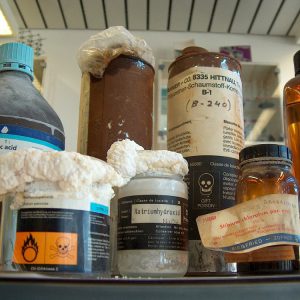
Groundwater contamination can last for decades and be difficult and expensive to clean up. Contaminated groundwater wellfields result in increased water utility costs in order to clean that water for human use. Pollution prevention is the key. Here are some ways you can help!
Chemical and Product Storage:
- Safely store, handle, and use chemicals and fuels. Keep them indoors or covered to prevent rain water from becoming contaminated and washing chemicals into a storm drain.
- Minimize the use of chemicals; always use them according to directions. Consider replacing them with more environmentally and human-friendly options.
- Test any underground fuel oil tanks that may be on-site for leaks.
- Make sure above-ground storage tanks are double-walled or, if they are single-walled, are placed inside a secondary container such as a tub, to prevent a potential leaks from reaching the ground or a drain.
Waste Disposal:
- Properly dispose of all waste: don’t dump chemicals down floor drains, sinks, storm sewers or on the ground.
- Keep lids of waste dumpsters closed to prevent rainwater washing materials out of them. Dumpsters should be placed on a hard surface, preferably concrete.
Floor Drains and Spills:
- If possible, eliminate floor drains in chemical storage and loading areas, or protect them with drain covers or drain plugs to prevent spills from entering them.
- Have an emergency response and spill plan for your business so employees know how to handle a spill or an accident if one occurred.
- Regularly inspect high risk areas of your business to catch a potential leak or accident before it happens.
These are just a few examples of best practices from groundwater protection. If your business is located in a drinking water protection area, your local health department will maintain a full list of practices required by law.
If you are located in Marion County, IN, within one of the drinking water protection areas (Am I in a Wellfield?), contact us to schedule a free, confidential business consultation to assist in your compliance with local groundwater protection ordinances.
